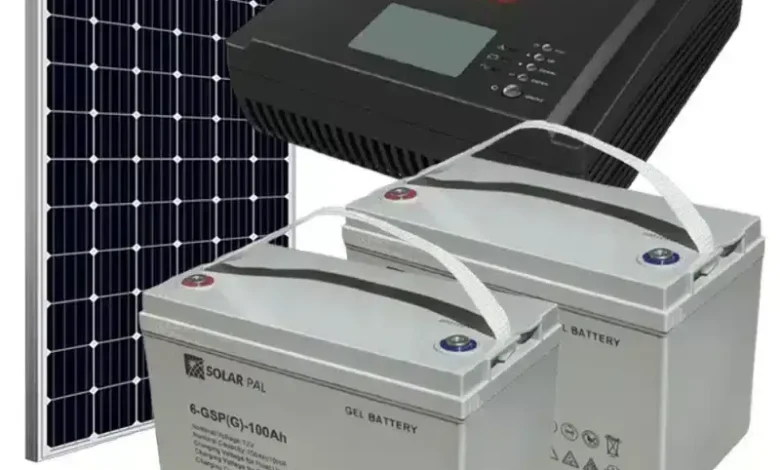“What to Know About Solar Batteries: Prices, Value, and Performance”

Solar batteries are a pivotal component of solar energy systems, enabling energy storage for use when the sun isn’t shining. While the cost of solar batteries may seem daunting, understanding their value and performance can help you make an informed decision. Here’s a comprehensive look at what you need to know about solar batteries, their pricing, and their overall benefits.
Understanding Solar Battery Prices
The solar and battery price depends on several factors, including its type, capacity, brand, and installation. Here’s an overview of typical price ranges:
Lithium-Ion Batteries: $200–$500 per kilowatt-hour (kWh). These are the most popular for residential use due to their efficiency and lifespan.
Lead-Acid Batteries: $100–$150 per kWh. A budget-friendly option but less durable than lithium-ion.
Flow Batteries: $500–$700 per kWh. Ideal for large-scale storage but less common for residential use.
Total System Costs: Including installation, a 10 kWh battery system can cost between $8,000 and $15,000.
What Influences Solar Battery Costs?
For larger homes or businesses, or if you plan to use your battery for off-grid living, you’ll need a battery with a larger storage capacity. Larger batteries can store more energy, but they come with a higher price tag. The cost of a larger solar battery system can significantly increase, especially if you need to pair it with a large solar panel array.
Capacity and Power Rating:
Batteries with higher storage capacity (kWh) and power output (kilowatts) are more expensive.
Example: A battery with a 13.5 kWh capacity (e.g., Tesla Powerwall) costs around $14,000 installed.
Brand and Technology:
Premium brands like Tesla, LG Chem, and Sonnen offer advanced features and longer warranties at a higher cost.
Budget-friendly options may sacrifice some efficiency or lifespan.
Installation and Integration:
Labor costs, system design, and required upgrades to your solar setup can add $1,000–$3,000.
Ensure compatibility with your existing solar inverter and system.
Performance and Lifespan of Solar Batteries
Lead-acid batteries are a more affordable option compared to lithium-ion batteries. They have been used in solar energy systems for decades and are known for their reliability. However, they have a shorter lifespan and require more maintenance, which can add to the overall cost of ownership over time. Lead-acid batteries are a good option for those on a budget but may not offer the same performance and longevity as lithium-ion batteries.
When evaluating solar batteries, performance and longevity are crucial:
Lifespan: Most batteries last 10–15 years, with warranties often covering 70–80% of their capacity after 10 years.
Efficiency: Lithium-ion batteries typically have a round-trip efficiency of 90% or more, meaning they retain most of the energy stored.
Depth of Discharge (DoD): Higher DoD ratings allow you to use more of the battery’s capacity without reducing its lifespan.
Are Solar Batteries Worth the Investment?
While solar batteries come with a significant upfront cost, their benefits make them a valuable addition to a solar energy system:
Energy Independence: Store excess solar energy for nighttime use or during outages.
Cost Savings: Reduce reliance on the grid and save on electricity bills, especially in areas with time-of-use rates.
Environmental Impact: Decrease your carbon footprint by maximizing the use of renewable energy.
Tips for Finding the Best Solar Battery
Assess Your Energy Needs:
Calculate your daily energy consumption and decide how much backup storage you need.
Compare Brands and Models:
Look for batteries with high efficiency, long warranties, and features like remote monitoring.
Leverage Incentives:
Check for tax credits, rebates, or grants in your region to offset costs. For instance, the U.S. federal tax credit offers 30% off installation costs.
Choose a Reputable Installer:
Ensure professional installation for optimal performance and safety.
Conclusion
Solar batteries represent a significant upfront investment, but their long-term benefits in cost savings, energy independence, and environmental impact make them worthwhile. By understanding their pricing, value, and performance, you can select a solar battery that meets your needs and enhances the efficiency of your solar energy system.









